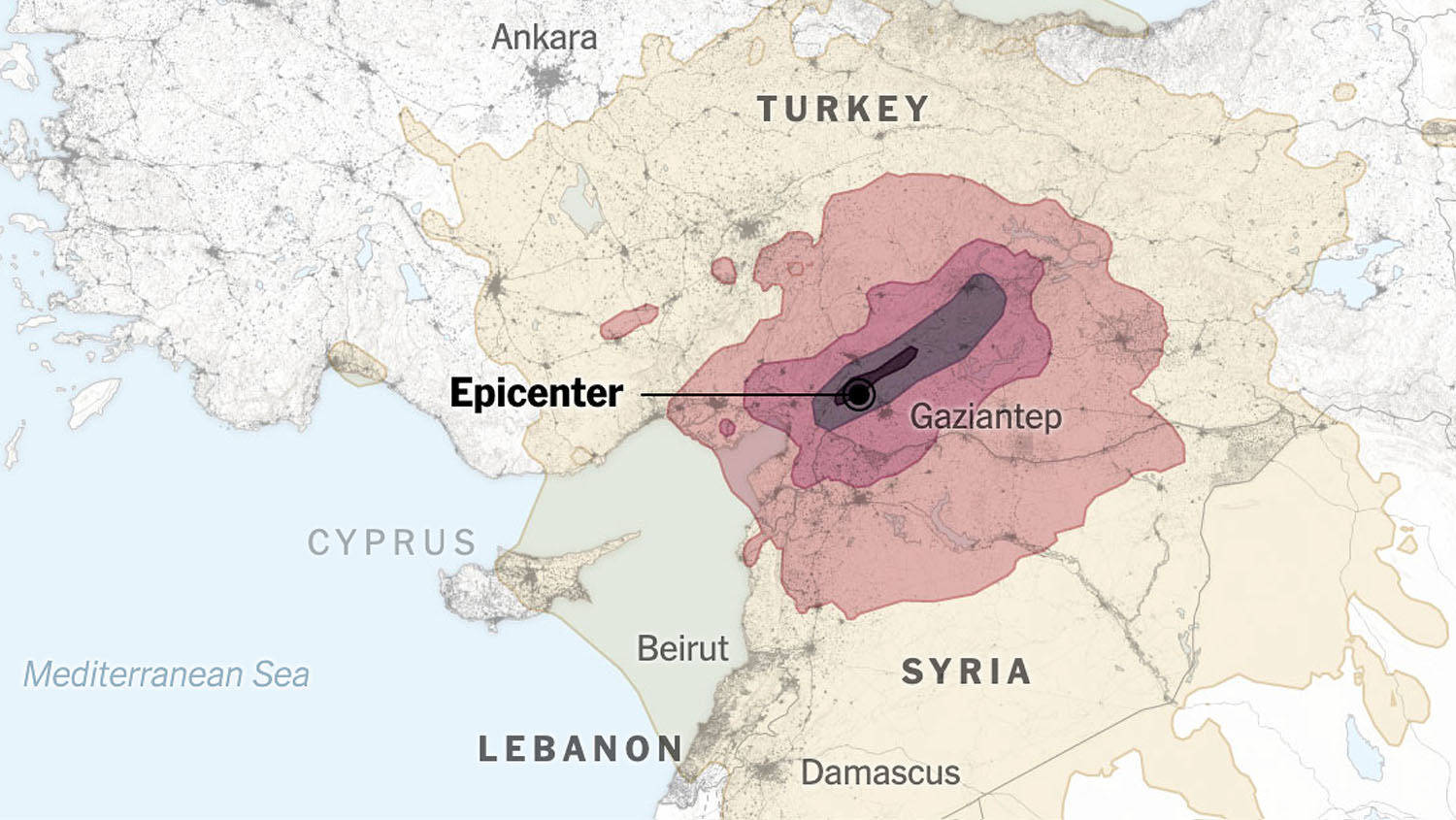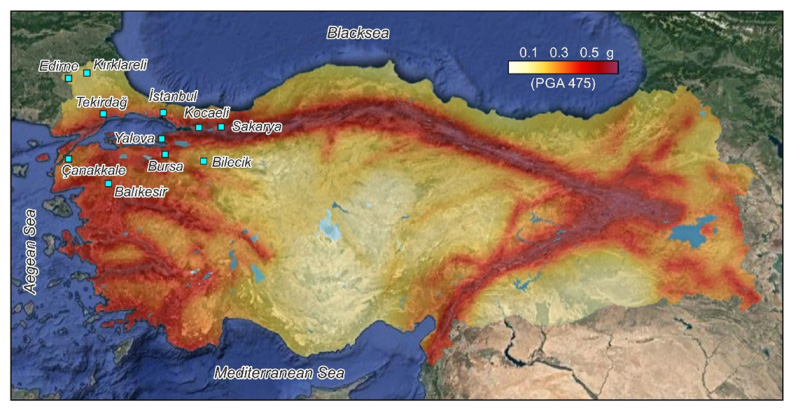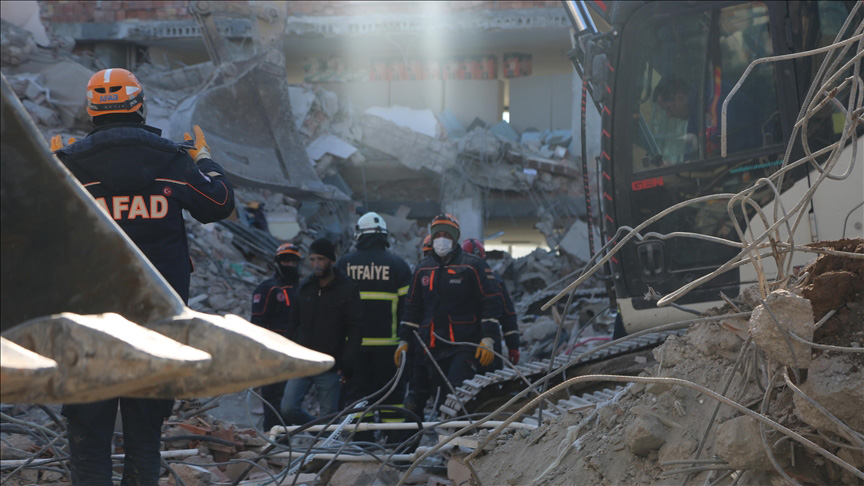In the early morning hours of February 6, a magnitude 7.8 earthquake struck southeastern Turkey, followed by a number of aftershocks, including a magnitude 7.5 earthquake.

In addition to the fact that this earthquake was an epicentral earthquake with a shallow epicenter, there were also large cities such as Gaziantep, Kahramanmaraş, and Antakya, so buildings with low earthquake resistance collapsed. Because of the outbreak, many people were sleeping at home, resulting in a large number of casualties.
Surrounded by many active faults, Turkey is an earthquake-prone country like Japan. Istanbul is also on the North Anatolian Fault, and since earthquakes move from east to west, it is said that a large earthquake could strike at any time.

It should be noted that this earthquake is not an ocean trench type earthquake that occurs at the plate boundary where the sea plate subducts into the land plate like the Tohoku earthquake, but a strike-slip type earthquake that occurred at the plate boundary. The average displacement rate of the North and East Anatolian faults is 2-3 cm/year, which is more than one order of magnitude higher than that of Japan's inland active faults. It is said that the environment is prone to large earthquakes. The scale of the mainshock this time was 16 times larger than the 2016 Kumamoto Earthquake, which was on the same strike-slip fault. It is thought to be caused by early morning outbreaks in winter in densely populated areas with many weak buildings.
Before I was stationed in Turkey, I was seconded to a ferry company that connects Osaka and Kyushu of the Mitsui O.S.K. Lines Group, and was in charge of the passenger department. At that time, the Kumamoto earthquake occurred. After the earthquake, most of the group tour reservations were canceled, and it became a serious situation. I thought that I had to do something for improving the situation and reached to the transport of the people participating in volunteer activities. For that reason, I made contact with many volunteer organizations and universities, and worked on arrangements such as transportation and accommodation so that volunteer groups can concentrate on volunteer activities. When I saw the situation after the outbreak on the news, I was able to reaffirm the differences from Japan and Turkey.
In Japan, some people do volunteer work, but I don't think there are that many people doing it. Therefore, it will not be a situation where people rush to the airport like in Turkey. In Japan, Social Councils under local Government in each region serve as contact points, but the actual coordination of volunteer activities is done independently by private volunteer groups. The gatherings of these volunteer groups coordinate the volunteer activities of individual visitors, groups of Social Councils from all over the country, and student groups gathered by universities, etc., to avoid confusion. However, there are almost no company-based groups.
However, in Turkiye, looking at company reports and photos, it seems that the AFAD is in command and the company detachments are under AFAD. It turned out that many private companies are taking the initiative and working on a large scale. Some of them may be volunteers, but I think most of them are based on instructions from the company. Also, there is a feeling that now is not the time to do business. In addition, because it is a country with strong manufacturing and mining industries, there are many strong people who can handle physical labor, and even at sites where secondary damage is likely to occur, rescue operations are carried out. In Japan, considering secondary damage, general volunteers are not allowed to work in such places. Such places are handled by the Self-Defense Forces(=Army in Japan).

It is believed that the reason why the number of deaths increased significantly every day after the outbreak was that many people were involved in rescue activities, and because they were able to act at collapsed sites, etc., many bodies were found. As I felt during the corona crisis, I am impressed by the extremely rapid and large-scale movements of the private sector such as industry in Turkey when a national crisis occurs. This time also, each company sent a large rescue force and under the command of AFAD, they were working on rescue activities. There were many companies that were responding company-wide.
At our company, one staff headed to the site, but we are a company of about 10 people, so we can't do anything big, but the staff voluntarily thinks of support items.
I wish Turkey a speedy recovery.
Satoshi Katada